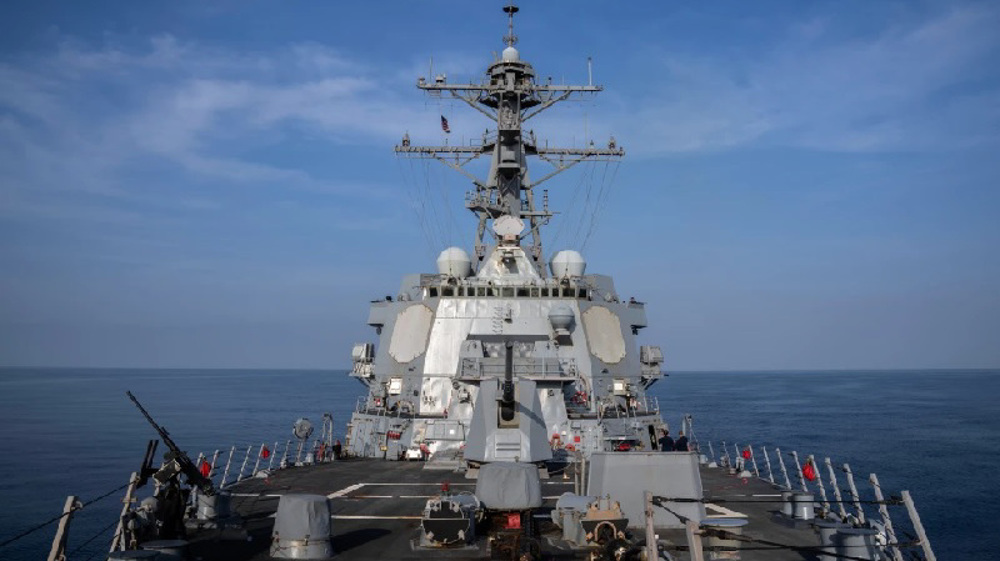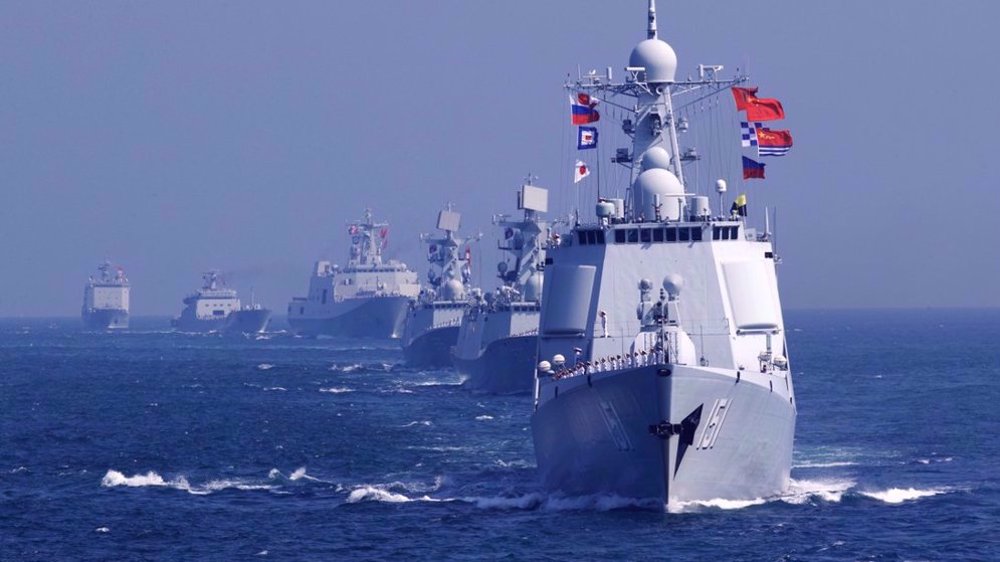On first trip to Asia, US's Blinken accuses China of 'coercion'
US Secretary of State Antony Blinken has accused China of using "coercion and aggression" in the region, in an indication that the new US administration would not be pursuing a different path toward Beijing.
Blinken arrived in Tokyo with US Defense Secretary Lloyd Austin in the first overseas visit by top cabinet members of US President Joe Biden's administration.
"We will push back if necessary when China uses coercion and aggression to get its way," Blinken said on Tuesday.
In a joint statement issued with their Japanese counterparts, Blinken and Austin said that Beijing's "behavior, where inconsistent with the existing international order, presents political, economic, military and technological challenges to the Alliance and to the international community."
Tokyo and Washington are "committed to opposing coercion and destabilizing behavior towards others in the region, which undermines the rules-based international system," said the joint statement.
The meeting was held in the “2+2” format, with Japanese Foreign Minister Toshimitsu Motegi and Defense Minister Nobuo Kishi as hosts.
The diplomats also criticized China for what they called Beijing's "unlawful" maritime claims in the South China Sea.
The US and Japanese diplomats expressed "serious concerns" about what they described as "disruptive developments" such as the law China passed in January that for the first time, allows its coast guard to open fire on foreign vessels deemed to pose threats.
The resource-rich South China Sea has been a source of tensions between Beijing and Washington, which not only sides with Beijing’s rivals in the maritime dispute but also regularly dispatches warships and warplanes to the waters as part of what it describes as "freedom of navigation" patrols.
Vietnam, Taiwan, the Philippines, Malaysia, and Brunei have overlapping claims with China to parts of the sea.
China has constantly warned the US against its military activities in the sea, saying that potential close military encounters between the air and naval forces of the two countries in the region could trigger accidents.
The diplomats also discussed Washington's "unwavering commitment" to defending Japan in its dispute with China over islets in the East China Sea.
China has maritime sovereignty disputes with Japan in the East China Sea. Tokyo and Beijing have for several years been locked in a row over a small group of uninhabited islands in the sea.
Ties between Washington and Beijing particularly soured under former US president Donald Trump, who clashed with China on trade, technology, and regional security, among other things.
Biden has described China as Washington's "most serious competitor," saying the US would continue to confront what he has called China's "attack on human rights, intellectual property and global governance."
Beijing has rejected those charges against itself and repeatedly said that the US must stop interfering in its internal affairs.
‘Multipolar world finally emerges’: Trump’s ‘National Security Strategy’ sparks online buzz
Netanyahu says won’t quit politics even if granted pardon in corruption trial
Macron warns Beijing of tariffs in bid for EU-China trade deal
White House pushing for Sisi–Netanyahu summit: Report
Iran’s tax-to-GDP ratio at 6.4% in March 2025: SCI
VIDEO | Tulkarm horror: Israeli forces used 10-year-old girl as human shield
VIDEO | Press TV's news headlines
VIDEO | Rallies held across Australia in support of Palestinians












 This makes it easy to access the Press TV website
This makes it easy to access the Press TV website